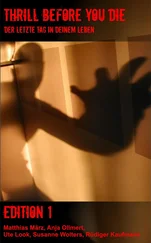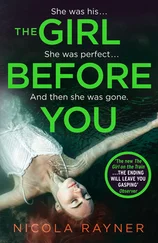She watched her husband with particular interest as he walked from her mother-in-law’s car to the house. She wanted to see whether she could detect what he was feeling, because she wanted to be able to comfort him. Comfort them. Charlotte, Willow, her mother-in-law, too. They all had to be reeling.
She presumed John was still numb, but there was also remorse because he had never bothered to deal with the jammed bullet. He’d mentioned it off and on over the past eight or nine months, but it simply hadn’t been a top-priority errand-especially after their lives were thrown into turmoil with the arrival of Patrick. She’d told John that she didn’t like the idea of a loaded gun in the house, but he’d reassured her that the safety was on and the gun was locked away. And Willow, they both knew, would never try to break into the gun cabinet.
Tonight the fellow from Fish and Wildlife had informed her that in some states keeping a loaded long arm in the trunk of a moving vehicle was a misdemeanor offense, but her husband was lucky because neither Vermont nor New Hampshire was among them. In response she’d said that her husband hadn’t a choice: He couldn’t unload the weapon, because the bullet wouldn’t come out! She was afraid that she’d sounded defensive-almost abrasive-but she thought she detected something vaguely ominous in the uniformed man’s remark, and she wanted it known that while John should have dealt with the bullet in the chamber, this wasn’t completely his fault. She presumed-as she had since that November afternoon when John had returned from his day in the woods-that there was some minor defect with the gun, because otherwise he would have finished unloading it.
Though she still didn’t understand exactly what Charlotte had said to the state trooper because the girl had been sobbing so hard, from the conversation she overheard it sounded as if the child didn’t realize there was a bullet in the rifle. This didn’t excuse her taking the weapon from the trunk of the car and playing with it, but it did make her behavior less foolish.
Still, as frustrated as she was with her husband for failing to take the rifle to a gunsmith, she was also saddened for him because she knew that John viewed Spencer more as a very good friend than a brother-in-law. She understood that he was going to be writhing in a deep, deep trough of guilt and self-loathing. Yes, she and John both considered Spencer a trifle extreme when it came to animal rights, but it was a pretty harmless eccentricity. At the moment, in fact, it seemed to Sara as substantially more harmless than her own husband’s recent interest in hunting-an ample eccentricity in its own right.
She noticed in the porch light over the garage that her husband advanced alone along the blue gravel to the slate walkway with the tentative steps of a very old man, leaving their daughter and their niece to Nan. They were a few paces behind him, and the whole group was inching forward without saying a word. She heard the jingle of his keys, but their steps were oddly soundless on the stones, as if they were walking on tiptoe.
A few seconds after they had rounded the corner of the house and were no longer in view, she listened for the worn-out wheeze of the screen door as it opened. Then, glancing once at her sleeping baby-his chest raising the small comforter ever so slightly as he breathed-she went down the stairs to see exactly how Spencer was doing and what she could say that might help.
Late Sunday morning Willow discovered strawberries the deer had neither devoured nor trampled. Her inclination was to kneel down and eat them, but she squatted instead because she didn’t dare get dirt on her knees-not this morning. The air felt heavy, and it was as eerily silent here at the edge of the yard as it was back in the house. Somewhere, she knew, there were birds, but they too seemed to understand that they didn’t dare make a sound. The high gray sky was creased with curlicue wisps of cirrus clouds, and the heat seemed to Willow as if it were rising up from the ground. She twisted the first strawberry she found from its vine and bit into its moist, cuneiform tip. She hadn’t had breakfast-her father had insisted on getting out the English muffins and boxes of dry cereal for her, but then the phone rang yet again and he was lost to a male voice at the other end of the line, and she hadn’t wanted to sit alone at Grandmother’s dining room table-and now, hours later, she was hungry. The strawberry was delicious, and not simply because she hadn’t eaten a thing since she’d gotten a candy bar from the vending machine at the hospital last night. She finished it off in a second bite and then tossed the cap stem into the weeds at the edge of yet more lupine.
When she’d been younger, her mother had read to her a children’s picture book about an old spinster who wanted to make the world a more beautiful place, and so she had spread lupine across some island. The spinster was called the lupine lady, and the lavender, blue, and ruby-colored flowers she planted were her gift to the world.
Grandmother’s lupine had largely peaked by the time she and her cousin had arrived here, and so the wildflower struck her as more of an aggravation than a present. It made it difficult to wade through the fields. She remembered how it had been torture to uproot it over Memorial Day Weekend.
She ate a second strawberry, this one smaller than the first, in a single bite. Then she started to paw through the plants and the flattened leaves for additional berries, and saw a whole cluster the deer had missed. It was pretty clear to her that no one in the house felt like eating, and so she figured if she wanted she could finish off the strawberries and no one would care. But she decided that certainly wasn’t what her uncle had had in mind when he’d placed these plants in the ground one by one. He’d envisioned them having feasts of berries together-as a family.
On the porch she saw her mother approaching the balustrade and leaning over the rail. She was pressing one of her feet abstractedly through the spindles and scanning the fields to the south. Any second she would turn her gaze to the west and see her. Willow knew there wasn’t time to race into the lupine-or, better still, the nearby cluster of white pine-and hide, but she wished there were. She didn’t want to be seen. She wanted to be invisible.
No, that wasn’t quite accurate. It wasn’t that she wanted to be invisible; it was that she wanted it to be nighttime again and to hear her father in the upstairs window, asking her to bring in some diapers for Patrick. If she could do it all over again-and, of course, she couldn’t-she would get the diapers while Charlotte wasn’t hovering over her shoulder, because then her cousin would never have discovered the rifle. She heard once again the colossal blast in her head. She had delivered the diapers to her parents and already come down the stairs. She was about to round the corner in the hall that led past the kitchen. Reflexively she ran toward the gunshot rather than away from it, because she knew immediately it was Charlotte. Her first thought, however, was that her cousin might have hurt herself-not someone else-but she didn’t really believe even that. When she thought back on those last precious seconds before she knew what in fact had occurred, she recalled racing outside convinced that Charlotte had accidentally fired the rifle into the air and somewhere in the distant fields a bullet was falling harmlessly to earth.
But then she heard the girl’s wail, almost at the same moment that she saw Charlotte standing in the grass near the garden with her hands empty at her sides. Already she had dropped the gun. Later that night she would learn from Charlotte’s interviews with the man from Fish and Wildlife and the state trooper that the rifle’s recoil had actually knocked her back onto her rear end-which was when she had dropped the Adirondack-but she had bounced back up as if she were a child’s inflatable, bottom-weighted punching bag. It was Aunt Catherine, arriving maybe a minute later, who’d heaved the gun against the nearby apple tree.
Читать дальше











